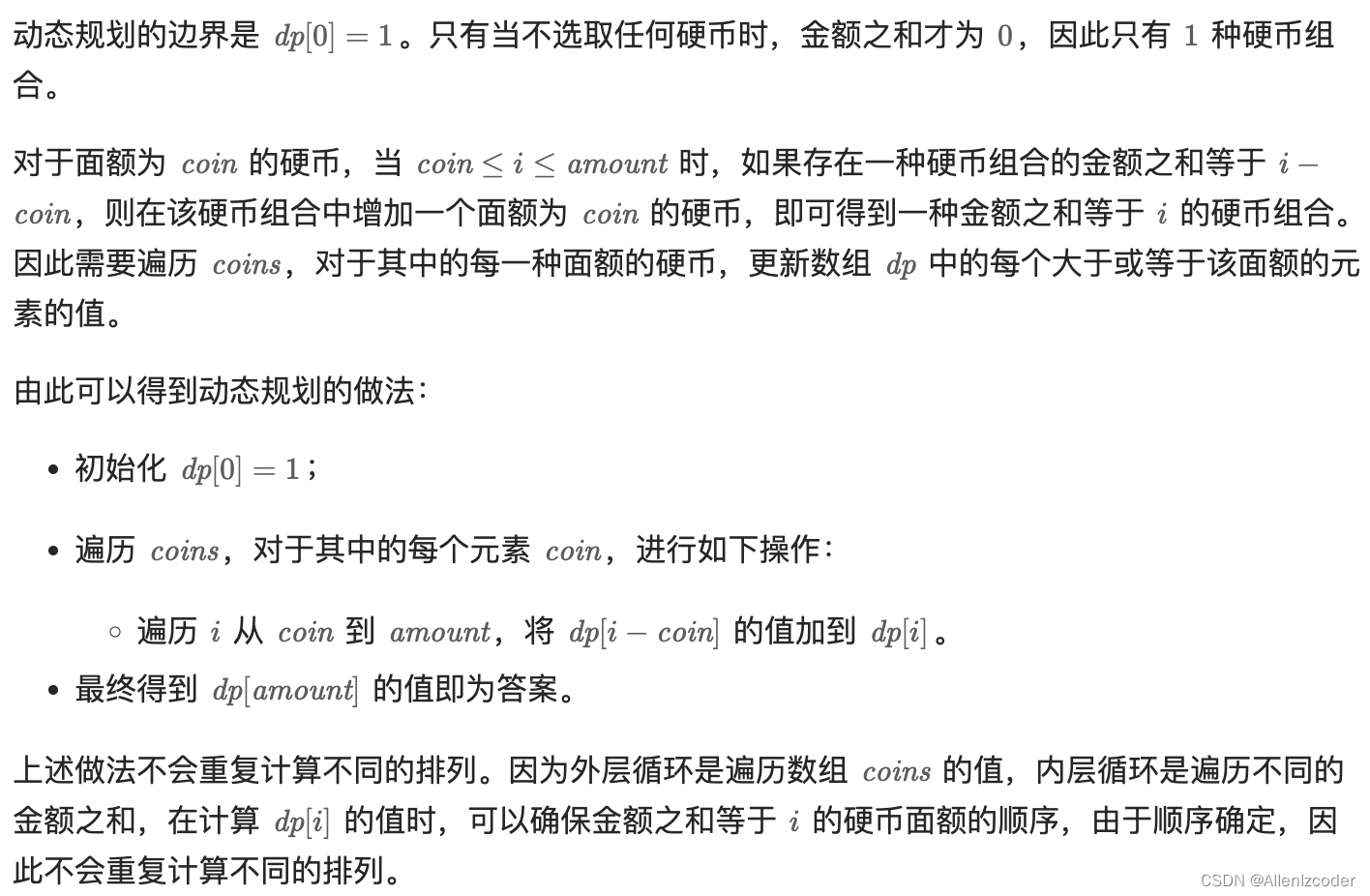【重点!!!】【背包】【回溯】518.零钱兑换II
发布时间:2024年01月19日
法1:背包DP,最优解法

解释如下:
0 1 2 3 4 5(背包容量)
1 0 0 0 0 0 没有硬币的时候)
=======================
0 1 2 3 4 5(背包容量)
1 1 1 1 1 1 1
=======================
0 1 2 3 4 5(背包容量)
1 1 1 1 1 1 1
2 2 2 3 3
有了面值为2的硬币后,哎,我就是不用,所以方案数还是dp[j]种;
但是我如果用了,那我看看在放入这枚硬币前,也就是背包容量为[j-coins[i]]的时候有几种方案;
两种情况加起来,所以就是 dp[j] = dp[j]+dp[j-coins[i]];
========================
0 1 2 3 4 5(背包容量)
1 1 1 1 1 1 1
2 2 2 3 3
5 4
class Solution {
public int change(int amount, int[] coins) {
int[] dp = new int[amount + 1]; // dp[i]表示金额之和等于i的硬币组合数,目标是求 dp[amount]
dp[0] = 1;
for (int coin : coins) {
for (int i = coin; i <= amount; i++) {
dp[i] += dp[i - coin];
}
}
return dp[amount];
}
}
法2:回溯DFS,基本方法
这道题目会超时!!!
class Solution {
public int ans = 0;
public int change(int amount, int[] coins) {
int n = coins.length;
if (n == 0) {
return 0;
}
dfs(coins, 0, amount);
return ans;
}
public void dfs(int[] coins, int startIndex, int target) {
if (startIndex == coins.length && target != 0) {
return;
}
if (target == 0) {
++ans;
return;
}
dfs(coins, startIndex + 1, target); // 不选startIndex
if (target >= coins[startIndex]) { // 选择startIndex
dfs(coins, startIndex, target - coins[startIndex]);
}
}
}
文章来源:https://blog.csdn.net/Allenlzcoder/article/details/135669836
本文来自互联网用户投稿,该文观点仅代表作者本人,不代表本站立场。本站仅提供信息存储空间服务,不拥有所有权,不承担相关法律责任。 如若内容造成侵权/违法违规/事实不符,请联系我的编程经验分享网邮箱:chenni525@qq.com进行投诉反馈,一经查实,立即删除!
本文来自互联网用户投稿,该文观点仅代表作者本人,不代表本站立场。本站仅提供信息存储空间服务,不拥有所有权,不承担相关法律责任。 如若内容造成侵权/违法违规/事实不符,请联系我的编程经验分享网邮箱:chenni525@qq.com进行投诉反馈,一经查实,立即删除!